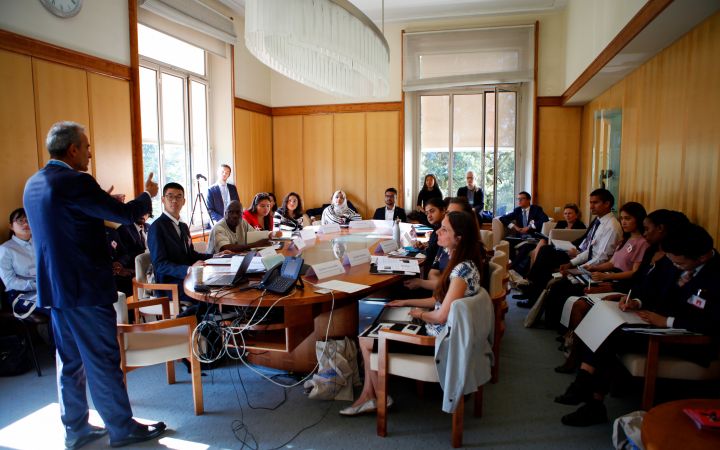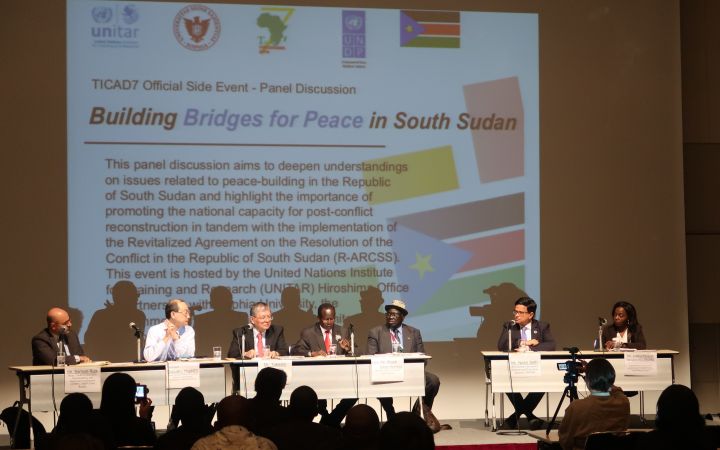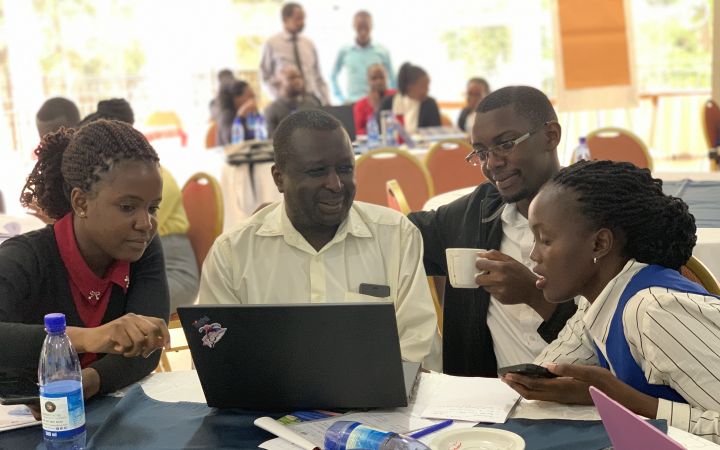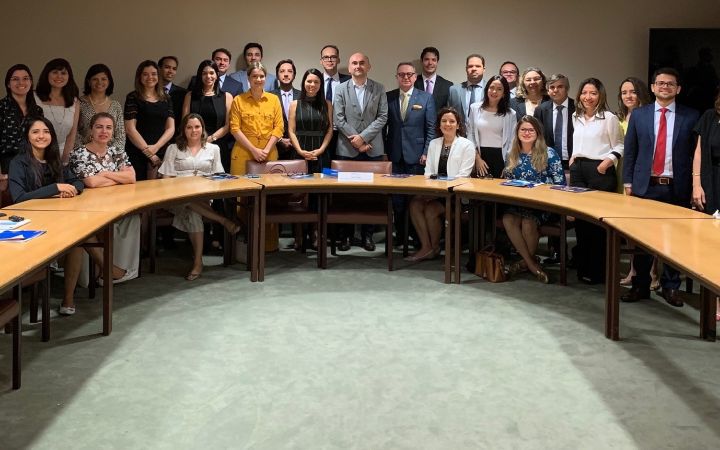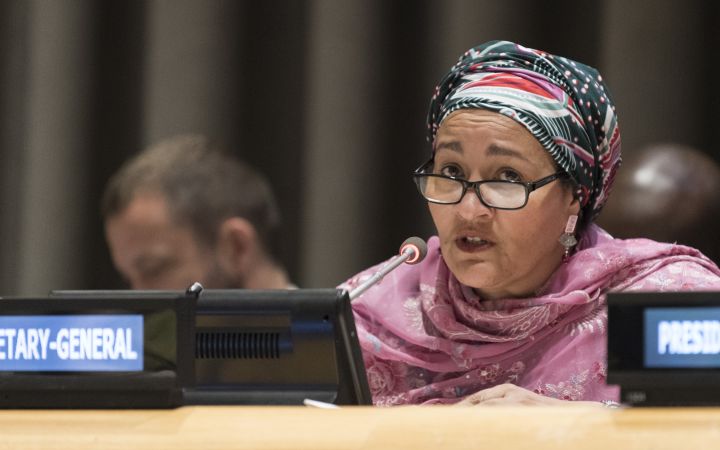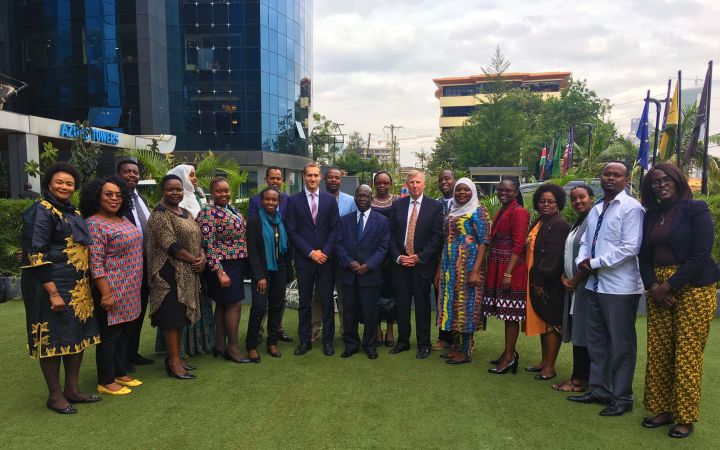Displaying 1431 - 1440 of 1755
June - August 2019, Geneva, Switzerland – The United Nations Institute for Training and Research is pleased to have welcomed several groups of international students and young professionals to the United Nations Immersion Programme this summer. The UNIP is designed to give young people across the globe an insight into the United Nations and multilateral diplomacy, providing them a platform to network and further their career development.
29 August 2019 Yokohama, Japan - TICAD7 official side-event panel discussion, Building Bridges for Peace in South Sudan, has successfully concluded in Yokohoma last Thursday. H.E. James Wani Igga, Vice President of South Sudan also joined the panel along with Hon. Onyoti Adigo Nyikwec, Minister of Agriculture and Food Security of South Sudan. Mr. Nihkil Seth, Executive Director of UNITAR, moderated the session. The discussion examined the peace-building efforts in South Sudan and emphasized the importance of promoting the national capacity for post-conflict reconstruction in tandem with the implementation of the Revitalized Agreement on the Resolution of the Conflict in the Republic of South Sudan (R-ARCSS). The panelists emphasized the significance to engage in youth and invest in the development of sustainable peace and prosperity in South Sudan.
On 11 – 12 June 2019 Kampala, Uganda - The Uganda Bureau of Statistics (UBOS) together with UNITAR and UN Statistics Division in collaboration with UN Economic Commission for Africa (ECA) held a national StaTact workshop in Kampala, Uganda. This workshop was initiated to review selected challenges related to the implementation of the Extension of the UBOS Strategic Plan for Statistics 2018 – 2020 in its pre-final year and train participants on the use of tactical approach and StaTact in their work.
26 August 2019, Curitiba, Brazil – The International Training Centre for Authorities and Leaders in Curitiba (CIFAL Curitiba) and The International Training Centre for Authorities and Leaders in Quito (CIFAL Quito) jointly with the Social Observatory of Brazil held the 3rd Congress Pact for Brazil. The objective of the event is twofold: to gather key stakeholders to promote dialogue on quality of public resources administration, transparency and accountability; and to improve public sector efficiency and to combat corruption.
21 August 2019 - New York, USA – The United Nations Institute for Training and Research (UNITAR) and Columbia Law School organized a Mediation briefing for students and faculty members from the University of Fortaleza - UNIFOR (Fundação Edson Queiroz - Universidade de Fortaleza), Brazil at the United Nations Headquarters in New York.
19 August 2019, Geneva, Switzerland - UNITAR is pleased to announce that registration is now open for the new free e-learning course on “Multilateral Conferences and Diplomacy for SIDs and LDCs Negotiators.” This course will take place from 14 October to 10 November 2019.
19 August 2019, Geneva, Switzerland - UNITAR is pleased to announce that registration is now open for the brand-new online course on “Diplomacy 4.0- Beyond the Digital Frontier.” This course will take place from 14 October to 24 November 2019.
15-16 August 2019, Nairobi, Kenya - As part of our three-year Memorandum of Understanding between UNITAR and the Ministry of Foreign Affairs of the Republic of Kenya, UNITAR’s Division for Multilateral Diplomacy held a workshop on Effective Writing and Multilateral Diplomacy in Nairobi, Kenya. It was designed to help participants learn basic and advanced writing and analytical skills for multilateral diplomacy; discover different forms and styles of diplomatic writing and reporting; and learn how to write Official and Diplomatic Correspondence in multilateral diplomacy.
The region of North of Tyne is working with the creators of EduCCate Global to implement a teacher training scheme based on e-learning resources developed by UNITAR.
07-08 August 2019, Brasilia, Brazil – UNITAR, the World Family Organization (WFO) and CIFAL Curitiba, in collaboration with the Government of the District of Brasilia, the National Association of Departments of Transportation (Associação Nacional de Detrans), and the Brazilian Association of State Roads Departments (Associação Brasileira dos Departamentos Estaduais de Estradas de Rodagem) and with the support of Diageo hosted the Road Safety International Conference in Brasilia, Brazil.


